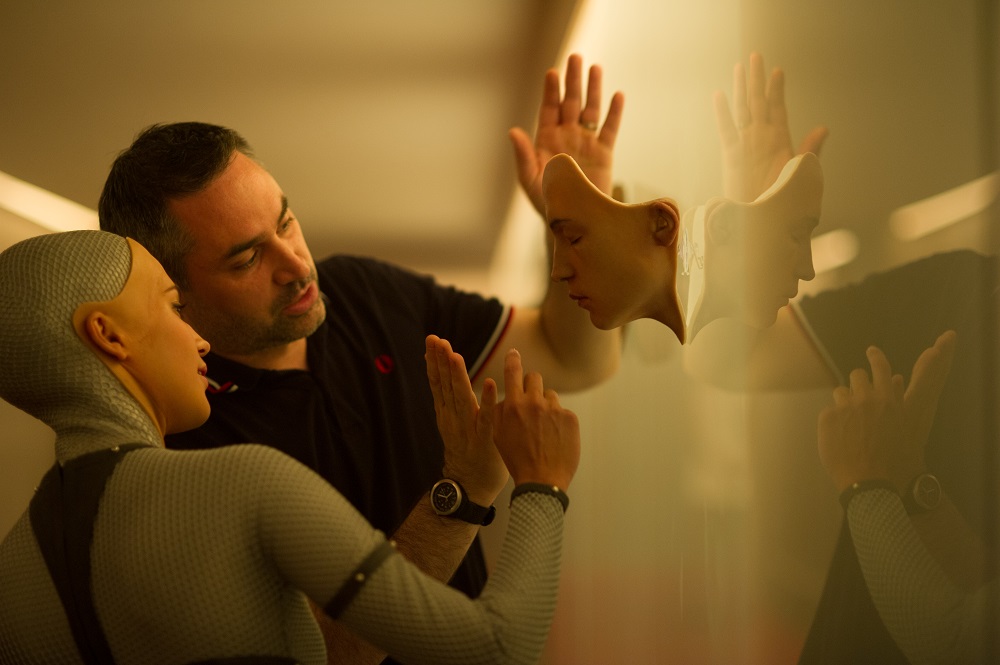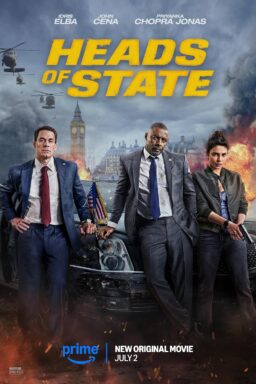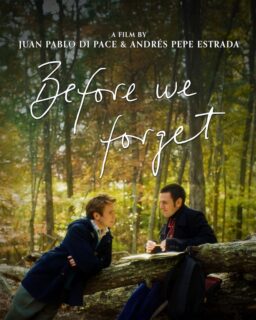Alex Garland’s sci-fi drama, “Ex Machina,” is the kind of film that sticks with you long after countless pictures have faded from memory. It centers on one of the most transfixing characters in recent cinema, a groundbreaking AI (or Mecha, as they were referred to in Spielberg’s “A.I. Artificial Intelligence”) named Ava that is designed to resemble an exceedingly attractive young woman. As brilliantly played by Swedish actress Alicia Vikander, Ava is a beguiling creature sure to befriend and perhaps seduce Caleb (Domhnall Gleeson), the coder assigned to interact with “her” at the secluded retreat owned by a mysterious CEO, Nathan (Oscar Issac). In his directorial debut, veteran screenwriter Garland crafts a suspenseful, startlingly sensual piece of provocative science fiction, bringing newfound urgency to such timeless questions as the nature of consciousness and whether a robot’s responses can be organic rather than merely programmed.
Garland spoke with RogerEbert.com about his film’s lifelike effects, his impassioned opinions regarding the work of Edward Snowden and his reasons for why AIs should be taken seriously.
Your film grapples with female objectification in intriguing ways. Ava was designed to feed into the fantasies of her male observers, and she learns how to use that to her advantage.
The thing about female objectification is that it’s sort of inarguable that it happens. There’s no real debate to have about it, it’s just so obvious. The film is definitely interested in aspects of that. The key thing about female objectification is that it creates a block that prevents you from thinking about what is actually going on inside the mind of the thing that you’re objectifying. That’s a straightforward part of this film narrative. I like the idea that there is this obstacle preventing viewers from thinking about what is going on inside the mind of this machine that looks like a girl in her early twenties. But actually, the thing that most interested me, on a personal level, wasn’t the objectification of women or that male/female dynamic. It was the question of where gender resides.
Does gender reside in the mind, or does it reside in the external physical form? Is there a such thing as male consciousness and female consciousness or is there just consciousness, and the male and female consciousness is essentially interchangeable? You could take Ava’s mind and put it in a male-looking body. I was also interested in how our instincts clash with things that are colder and more rational. It would be quite easy to construct an argument that Ava doesn’t have a gender, but very hard to call her something that isn’t “she.” Because if you call her “he,” that just seems plain wrong. And if you called her “it,” that would seem somehow disrespectful. So you’re left with “she” as the term that feels most appropriate, whilst also feeling that she’s not a “she.”

Adweek reported on a marketing strategy your film has utilized involving a “woman” resembling Ava that conversed with men on Tinder during this year’s SXSW festival.
I read about that online too. I haven’t got any insight into that because I didn’t know it was happening. It’s tricky because although I’m really interested in tech of certain sorts—I’m fascinated by [the Artificial Intelligence startup] DeepMind that Google just bought—I’m also incredibly behind the times in other respects. I don’t really know what Tinder is. I’m not on Twitter, I’ve never been on Facebook or MySpace. There are these huge blank areas where I’m unable to say anything reasonable about technology. A good example of that is in the film. It’s the kind of thing that would get attributed to being a decision when in fact, it was more like a mistake. We use key cards to get into each section of the house. About twenty years ago, I had read a piece about Bill Gates which said he had key cards, and I thought, “Wow, that’s futuristic.” But that was twenty years ago. I was writing the script now and I still thought it was futuristic. Then after the film was shot and completed, somebody said, “Why are they using key cards? You could use your mobile phones with a fingerprint scanner or you could use a retinal scanner. Way better than a key card.” I’m like your grandfather with the remote in some respects. [laughs]
I was struck by the line of masks in the house that chart mankind’s various reproductions of its own image throughout time.
That’s a version of the famous image depicting an ape walking from left to right. As it walks, it gets more upright, loses its hair and eventually becomes human. My idea was to echo these stages of representation through folk art forms that end not with our face but with Ava’s face. For me, it’s a representation of human evolution and I see Ava as being evolutionary. There’s a conversation in the film where one of the characters says to the other, “We’re the equivalent of australopithecus, the neanderthal man. We’re an upright ape living in dust, just about to become extinct.” I see the new, genderless creature represented by Ava as a continuation of the species, and the masks were supposed to be, in some sense, a representation of that.

The effects were especially convincing in how they fused the features of the actress with animation. How were they achieved?
It was a labor of love on behalf of the effects team. We’re not a big-budget film. Basically what they said to us was, “We really dig this idea and we’re gonna make it work.” We had six weeks to shoot the film, so we couldn’t slow things up onset. Every time we’d shoot a scene involving Ava, we jumped in and shot a plate. It took us thirty seconds. I had just finished “Dredd,” which was a big VFX movie by the standards of the small British films I had done. That had loads of tracking markers and stuff like that. This was very different—an elegant, simple process. The effects team created an Ava that could move around, resulting in organs popping out of her body when she twisted her hips in a certain way. She functioned kind of like a skeleton. Then they would just take the images that we shot and track them. The motions were defined fundamentally by what the actress did, but inevitably, there is an element of animation within them.
If Ava were entirely computerized, her movements likely would have had an elasticity to them that wouldn’t have been as convincing.
There are some odd things that happen in our actual movements. Alicia’s performance was meant to mimic the uncanny valley. Rather than perform human actions in a way that looked overtly robotic, she would simply do them perfectly. Since her co-stars don’t strive for the same level of perfection in their movements, it gives her a sense of otherness. It helps that Alicia is a very highly trained ballerina. She worked at a very top level in the Swedish royal ballet for years and years before becoming an actress. So she has this incredible dancer’s control over her physicality.
It’s funny how the wires visible in Ava’s arms make her look all the more human, since they resemble veins.
There’s a referencing, essentially, of human skeletal structure and rough placements of organs. But then, they glow and there’s a softness to them. This is sort of a post-iPhone design where things have a sleekness and a grace and an organic quality as well.

The juxtaposition of the natural landscape with the metal and glass of Nathan’s house mirrors the mixture of human and machine characteristics found in Ava.
That’s exactly right. We have the uncontrollable exterior of these enormous, slightly desolate mountains and skies and forests and rivers and waterfalls juxtaposed with a tightly controlled interior where everything is restricted. It is, in fact, covertly a prison, but then unavoidably proves to be uncontrolled because of the organic life—both man and machine—that resides there.
Your scripts for Danny Boyle (“28 Days Later,” “Sunshine”) have a similarly claustrophobic quality, entrapping characters in desperate situations.
I do like that pressure cooker environment. Broadly speaking, though, drama is: “Take some people, stick them between a rock and a hard place and see what happens.” [laughs] While writing this script, I wanted to take some cues from what’s going on in TV, where they’re devoting time to characterization, and it’s to the enormous benefit of the dramas they’re telling. Pound for pound, the best adult drama that’s been filmed over the last ten years is more likely to be found on TV than in cinema, and as someone who works in cinema, that’s f—king annoying. I love those TV dramas. I really respect them and I want more of them, because I think they’re so fantastic. But I also feel frustrated that cinema is not able to keep pace with them, because they should be able to. The guys in film who I look up to and aspire to like are the Coen Brothers, Soderbergh and Paul Thomas Anderson.
Are there particular sci-fi films that have inspired you?
The stuff that people tend to love is often from an older time. I love the first “Alien.” I remember having a conversation with someone who said, “Everyone agrees the best ‘Alien’ is the second one,” and I thought, “What the f—k are you talking about? That’s the last thing I would agree with.” [laughs] “2001” would be another, of course. [Andrei] Tarkovsky’s “Stalker” is f—king incredible—just utterly hypnotizing and beautiful filmmaking. When you say great sci-fi, that’s where my head goes. I don’t know if you would even call “Stalker” sci-fi. I don’t even know what it is, but that’s where my brain went.
All three of those films are enhanced by their mesmerizing atmosphere.
They are hypnotic and I like being hypnotized. That’s kind of what I want cinema to do.
You mentioned your thoughts on Edward Snowden in a previous interview, which seems relevant here, considering how his work has shed light on the ways in which technology has been able to absorb our very identities.
What Snowden did was inarguably fantastic. I think there needs to be a very clear statement made by the American government that says we’re not going to prosecute this guy, because what he did was for the benefit of democracies around the world. We need to acknowledge that we screwed up and this guy was keeping us honest. It’s kind of disgraceful that that hasn’t already happened. Ultimately, Snowden was whistleblowing on a government organization and if people get sufficiently pissed off about this stuff, which they should, they have the ability to vote out a government, because this is a democracy. They can get rid of a government if they exercise their rights as citizens.
With tech companies, that’s not true. They’re not voted in. In theory, there’s a capitalist consumer power, but it’s illusory, because it would mean not having a phone or a computer or a credit card or a TV or any number of things, and that’s unrealistic. There needs to be more transparency about what goes on in these companies. They are too powerful and power needs checks and balances. It’s as simple as that. That said, I actually love the tech companies and I love what they produce. To me, they are the modern incarnation of NASA. I want Google to be developing credible AIs. That is utterly fascinating and it’s great that they’re pouring all this money into it. I love the innovations that happen in cell phone technology or digital cameras. It’s just phenomenal, but it has to be done responsibly.
There’s an attempt in the film to draw parallels with Oppenheimer and the atomic bomb. I’m one of those green people that’s actually in favor of nuclear power, because I think it’s a very good way of creating energy in an ecologically responsible fashion. Nuclear power is obviously really dangerous, but that doesn’t stop us from being able to use it carefully. I’d say broadly the same thing is true of AIs. Strong AIs, self-evidently, could be dangerous—singularity, runaway super-intelligence—that stuff could be dangerous, no question. But you should just go about it in a smart manner.
And, as your film demonstrates, the AIs should be treated as beings worthy of respect.
Yes, they should be treated well.












